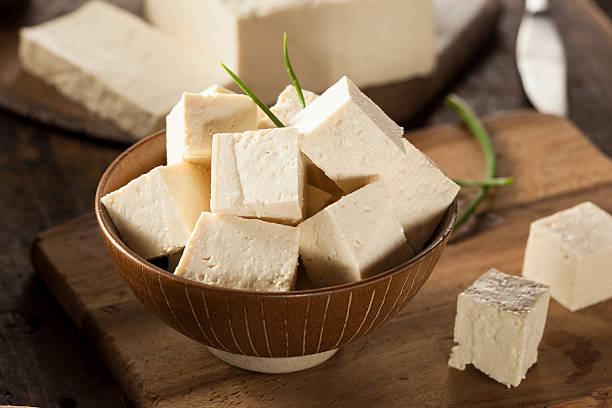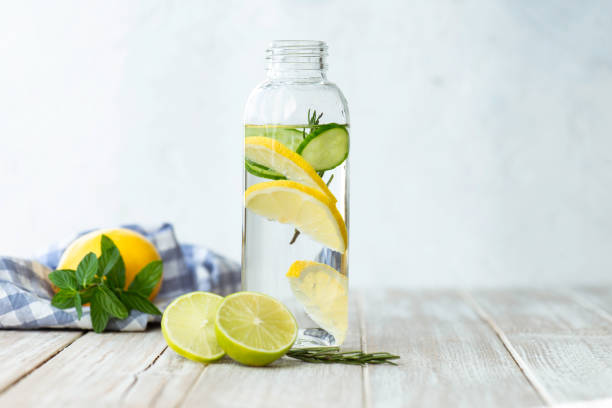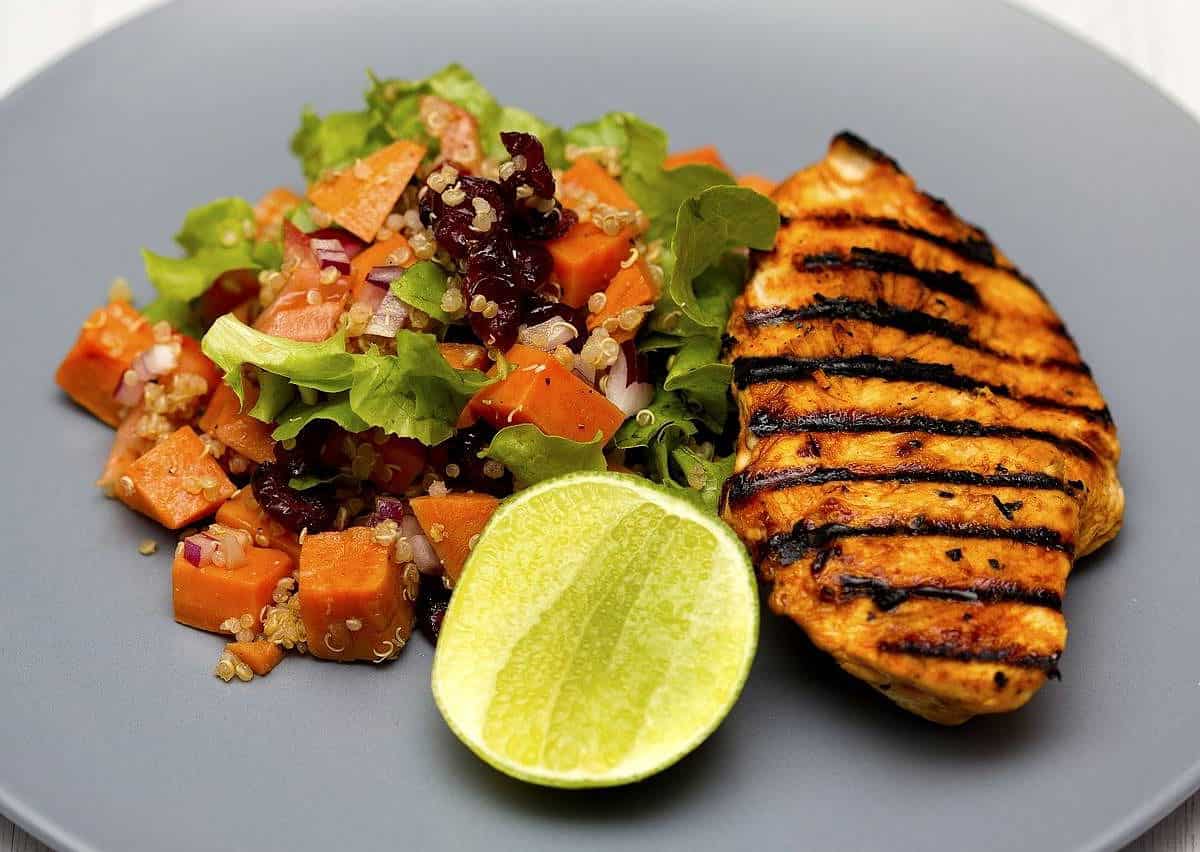Navigating the landscape of food choices can be overwhelming, especially when your digestive system is compromised due to surgery, illness, or treatments like chemotherapy. As someone who has undergone a colectomy, I understand the struggle to find foods that provide essential nutrients and are easy on the digestive system. In this blog, I’m going to share some of my go-to foods that help me maintain a well-balanced diet while being gentle on my gut.
When you’ve undergone a colectomy or find yourself navigating the delicate terrain of digestive disorders, selecting the right foods isn’t just a matter of preference; it’s a necessity. Having been through the complexities of a colectomy, chemotherapy, and dealing with sensitive digestion, I understand the urgency of finding protein-rich foods for easy digestion. This blog serves as a guide to those crucial yet delicious, protein-rich foods that have been my lifeline through recovery and beyond. They’re packed with protein and easily digestible—two essential criteria for delicate digestive systems.
The Significance of Protein and Hydration
Protein
Protein is indispensable, especially when you’re dealing with compromised digestive health. This vital nutrient aids cell growth, muscle repair, and immune system fortification. These processes become even more critical when you’re recovering from surgical procedures like a colectomy. Studies have also shown that adequate protein intake can accelerate the healing process. Moreover, it can alleviate symptoms associated with various digestive disorders.
Hydration
Hydration plays a starring role in digestive health. It aids everything from breaking down food for nutrient absorption to softening stool for easier bowel movements. Research has established that dehydration can exacerbate symptoms of digestive disorders and interfere with medication effectiveness, especially for individuals undergoing treatments like chemotherapy. Effective hydration strategies include a consistent water intake, high-water-content foods, and moderation in consuming dehydrated beverages like caffeine and alcohol.
The Top 5 Protein-Rich Foods for Easy Digestion
1. Protein Smoothies – Plant-Based or Whey, The Choice is Yours
Protein smoothies are my go-to for a quick, easily digestible source of protein. I’ve tried many brands over the years; I love Shaklee and Garden of Life. 30 grams of quality plant protein per serving makes meeting daily protein needs a breeze. These particular brands are formulated with clean, easily digestible nutrients that do not cause bloating and taste wonderful. They align perfectly with the theme of protein-rich foods for easy digestion.

Why It’s Beneficial:
- High Protein: Studies have shown that plant-based proteins can be as effective as animal-based proteins in muscle repair and immune function.
- Easily Digestible: Numerous reports confirm plant proteins are often gentler on the gut than animal proteins.
2. 0% Fat Plain Greek Yogurt
If you are not lactose intolerant, Greek yogurt is an excellent source of protein and probiotics. It took some time for me to ease into eating Greek yogurt; my stomach was extremely sensitive to lactose after my hemicolectomy. After a few months, I could slowly add it back into my diet. My favorite way to eat yogurt is by adding frozen blueberries, honey, and cinnamon. It turns this bland snack into a tasty, nutrient-dense treat.
Why It’s Beneficial:
- Rich in Probiotics: According to studies, probiotics can significantly improve gut health.
- High Protein: Research indicates that higher protein yogurts like Greek yogurt can help repair and maintain muscle.
3. Tofu (Firm and Extra Firm)
Tofu isn’t just a vegetarian staple; it’s a versatile protein source that is easily digestible and adapts to a variety of dishes. Firm and extra-firm types are my favorites due to their texture and cooking versatility.
Why It’s Beneficial:
- High Protein: With up to 10 grams of protein per serving, tofu is an excellent choice for those needing protein-rich foods for easy digestion post-colectomy.
- Easily Digestible: Studies suggest that plant-based proteins like tofu are often easier on the digestive system.

4. Eggs and Egg Whites
Eggs are nutritional powerhouses, providing a range of essential vitamins, minerals, and protein. Scrambling them with vegetables like spinach enhances their nutrient profile.
Why It’s Beneficial:
- Nutrient-Dense: Eggs are a good source of various nutrients, including Vitamins A, D, and B12.
- High Protein: One egg can provide up to 6 grams of protein, making it a good option for those seeking protein-rich foods for easy digestion post-colectomy.
5. Chicken Breast
Chicken breast was often the only protein source I could tolerate during my chemotherapy journey. It’s lean, full of protein, and very easy to digest.
Why It’s Beneficial:
- High Protein: Chicken breast provides about 31 grams of protein per 100 grams, making it one of the most protein-rich foods available.
- Easily Digestible: The lean nature of chicken breast makes it easier to digest, making it ideal for those with sensitive digestive systems.
A Deep Dive into Effective Hydration
After my colectomy and while navigating other digestive challenges, I realized the absolute non-negotiable importance of proper hydration. While we often hear the mantra “stay hydrated,” I wanted to understand what this meant in the context of compromised digestion.
The Science of Hydration and Digestion
Studies have confirmed that dehydration can significantly worsen symptoms of digestive disorders. For example, insufficient water intake can thicken the gastric juices in your stomach, increasing the chances of acid reflux. Plus, dehydration can slow down the digestive system, leading to constipation, which is the last thing anyone with digestive issues needs.
My Go-To Hydration Techniques
Consistent Water Intake: I found that rather than gulping down a large amount of water at once, sipping slowly throughout the day keeps my digestive system from feeling overwhelmed. My aim is about 100 ounces a day, and I adjust based on my activity level and the climate.
Infused Waters: To keep things interesting and to add a bit of natural flavor, I frequently infuse my water with cucumber, lemon, or even a splash of mint. Not only does this make it more palatable, but these elements also have their own digestive benefits.

Electrolyte Boost: On days when I’m extra active or feel dehydrated, I’ll add an electrolyte tablet to my water. This isn’t a daily practice but more of an occasional boost.
Limit Caffeine and Alcohol: Trust me, I enjoy a cup of coffee or a glass of wine just as much as the next person, but limiting these beverages has had a remarkable impact on my hydration levels and, consequently, my digestion.
My Effective Eating Strategy for Optimal Digestion
Another critical piece in my puzzle of protein-rich foods for easy digestion is how I eat throughout the day. I’ve experimented with various eating schedules and found that smaller, more frequent meals work wonders for my sensitive digestive system.
Why Small, Frequent Meals?
By consuming smaller quantities, I give my digestive system a more manageable workload, which has resulted in fewer flare-ups and discomfort. These frequent meals also allow for better absorption of nutrients, including the much-needed protein, into my system.
How I Time My Meals and Snacks
- Breakfast: I start my day with a plant-based protein smoothie. It’s not too heavy but packed with nutrients and sets the tone for the day.
- Mid-Morning Snack: Around 10 a.m., I have a hard-boiled egg or some Greek yogurt mixed with blueberries. It’s just enough to keep my energy up without weighing me down.
- Lunch: This meal often includes tofu or chicken breast as the protein source, accompanied by cooked veggies to make it balanced and easily digestible.
- Afternoon Snack: I usually opt for another high-protein snack like a handful of almonds or a slice of lean turkey.
- Dinner: Keeping it light and early, dinner is often similar to lunch but in smaller portions.
- Hydration: Between these meals, I’m consistently sipping on my water or infused waters to stay hydrated.
The “Listening to My Body” Mantra
I found that being attuned to how my body responds after each meal has been invaluable. If I feel slight discomfort, I note what might have caused it and adjust accordingly. This ongoing “dialogue” with my body has been crucial in honing my eating habits for optimal digestion.
Final Thoughts
After undergoing a colectomy and tackling ongoing digestive issues, my journey led me to a holistic understanding of nutrition, focusing especially on protein-rich foods for easy digestion post-colectomy. But let’s not forget that proper hydration is just as critical. Through trial and error, I’ve found that combining nutrient-dense, protein-rich foods with a consistent hydration plan and a well-timed eating schedule is the golden trio for managing my digestive health.
Finding the right diet after a colectomy or while managing a digestive disorder is a journey of resilience and adaptation. My experience taught me the irreplaceable value of protein-rich foods for easy digestion. Hydration, too, stands as an unsung hero in this journey towards better digestive health. So, the next time you find yourself questioning what to eat, consider these nutrient-dense, protein-packed, and easily digestible options. Here’s to a resilient, well-nourished future where your digestive challenges become just a chapter in your ongoing story of health and well-being.



